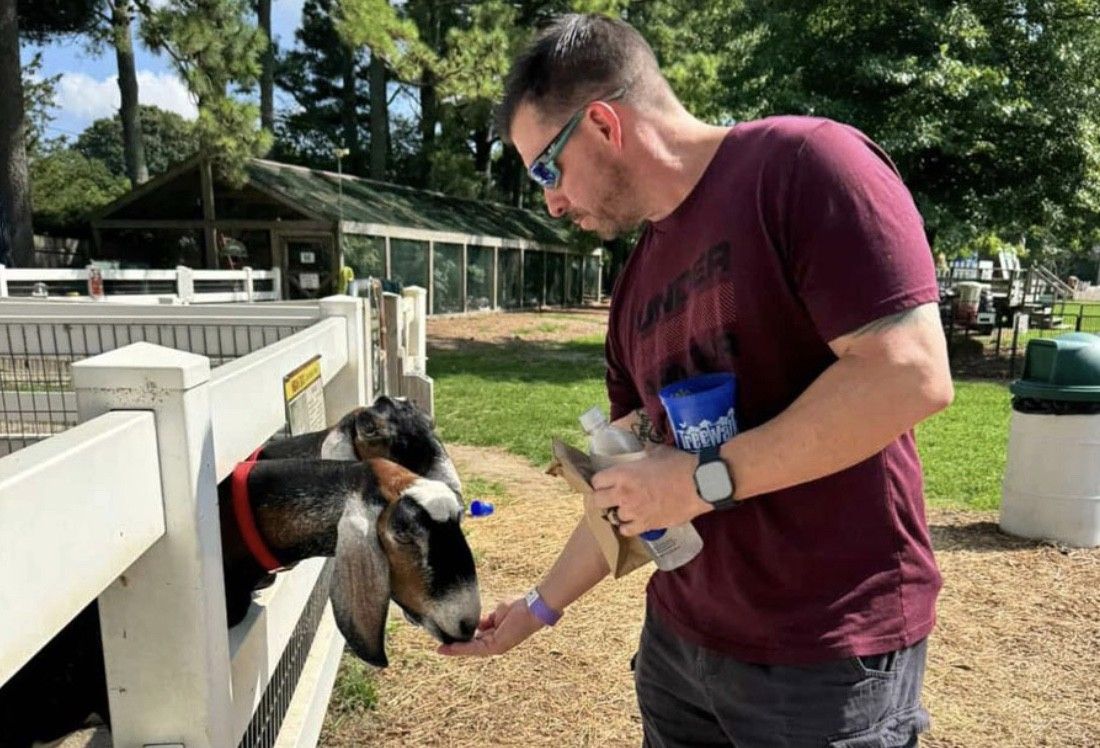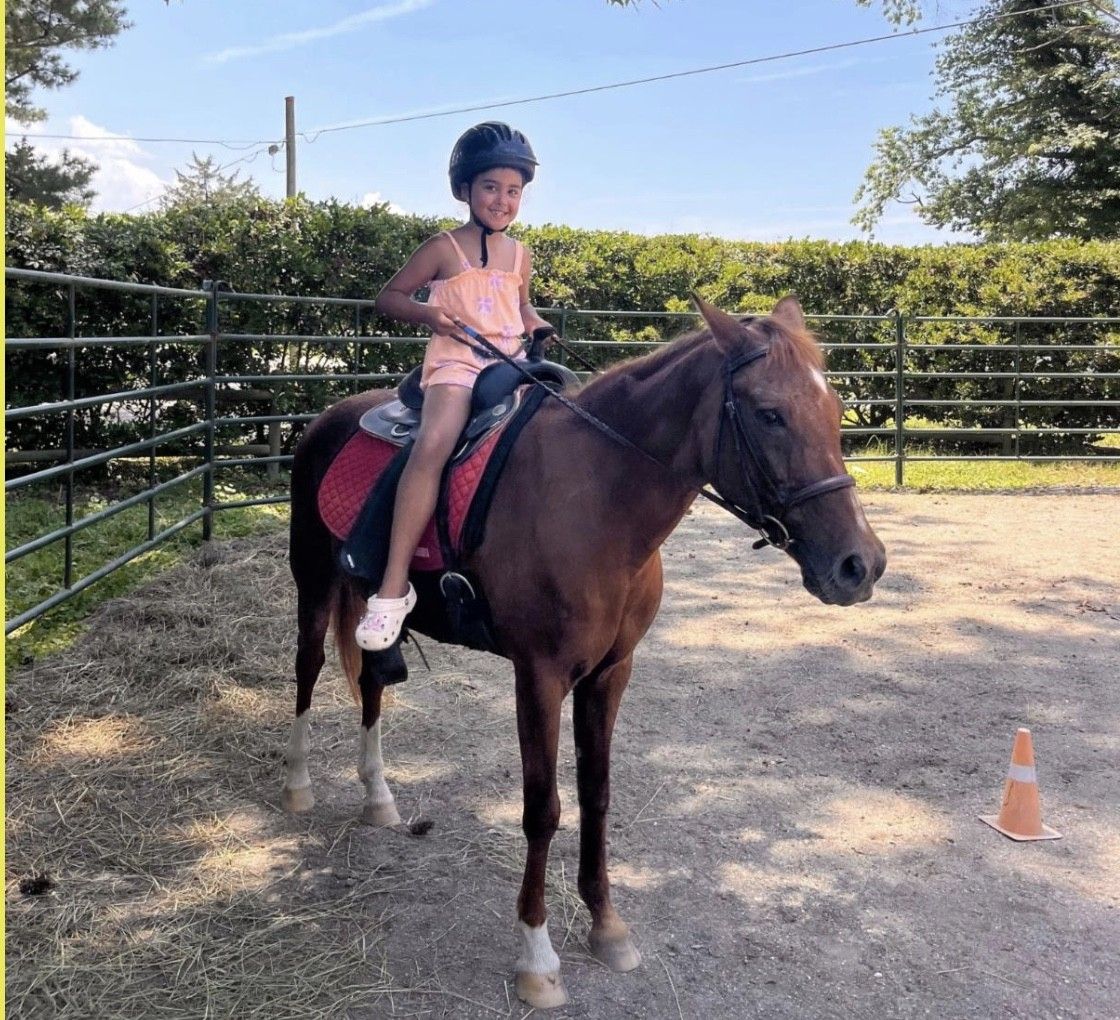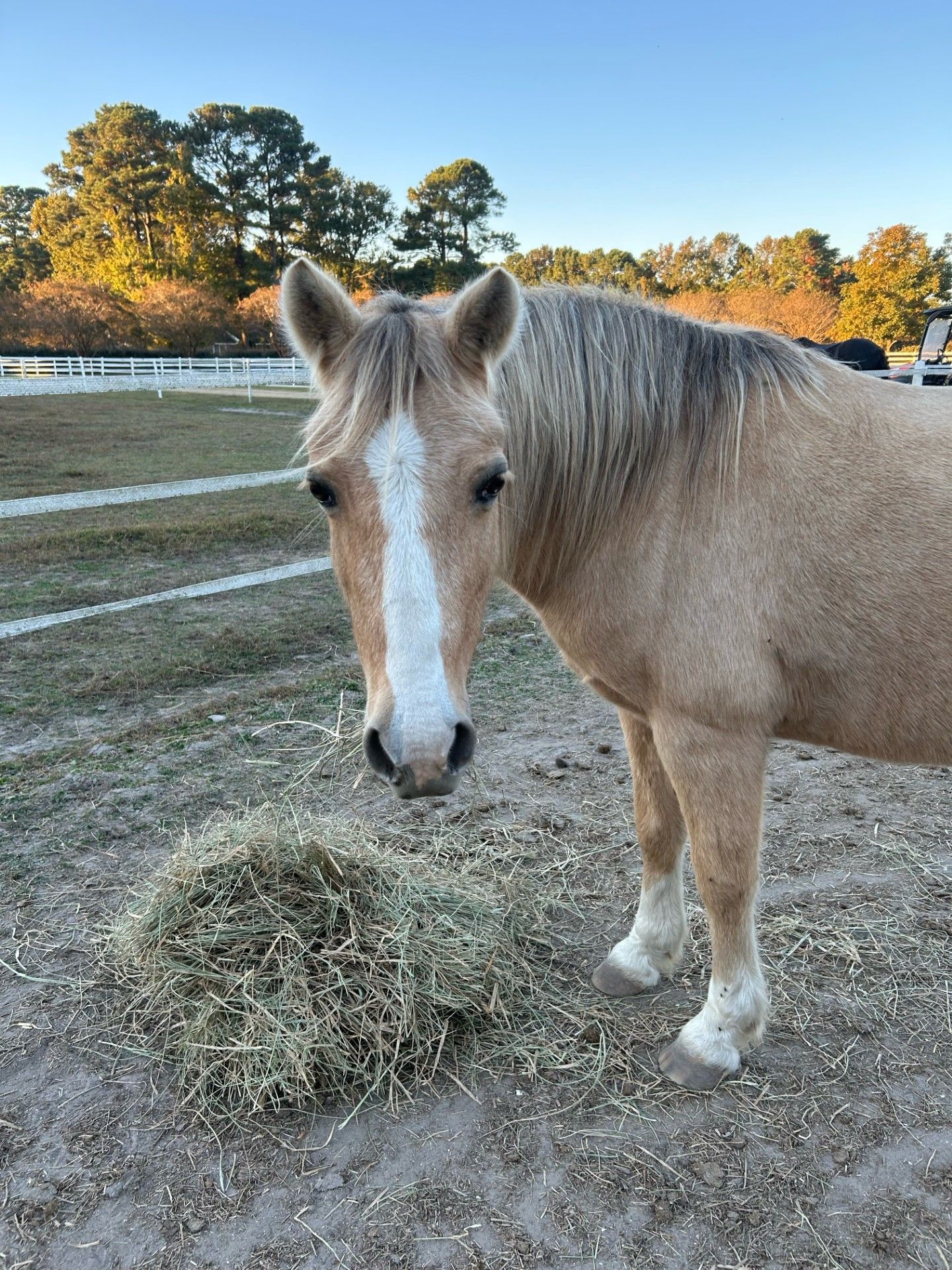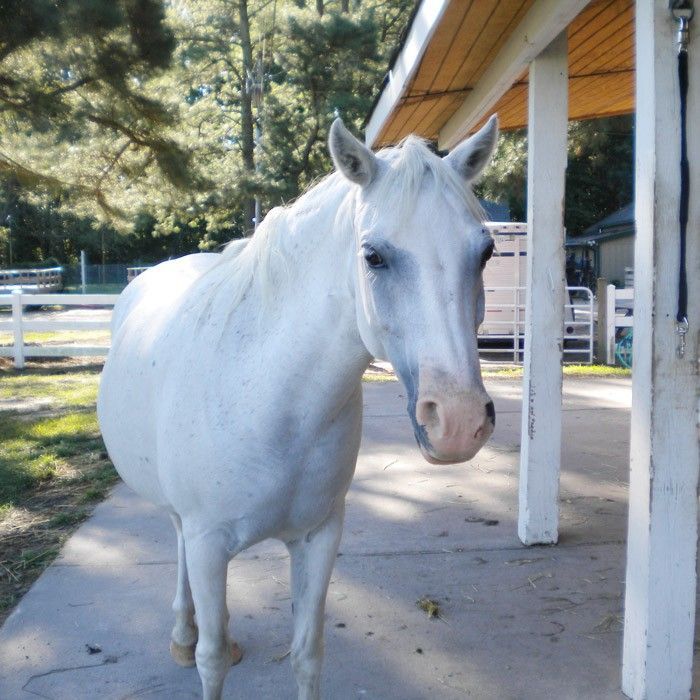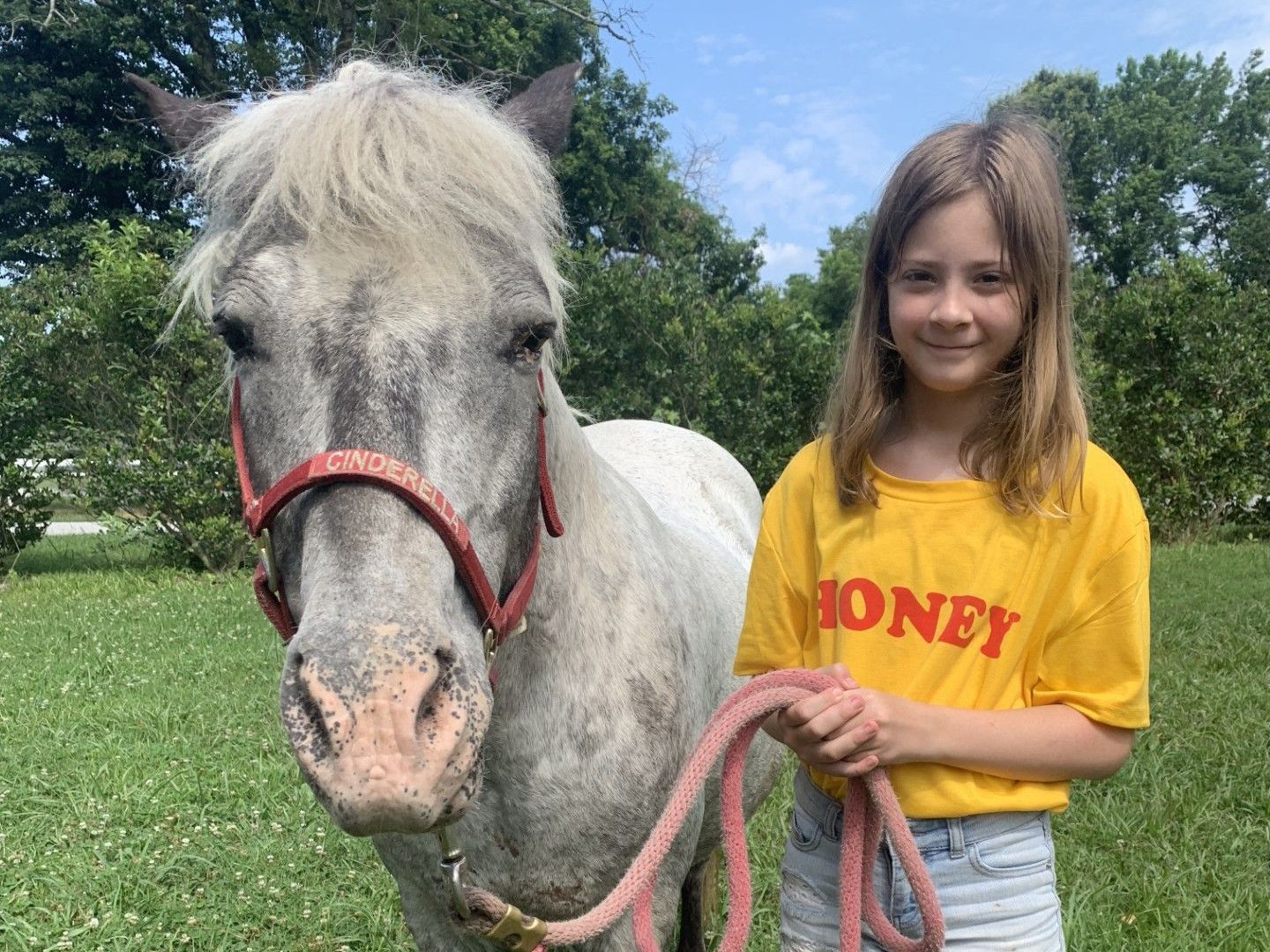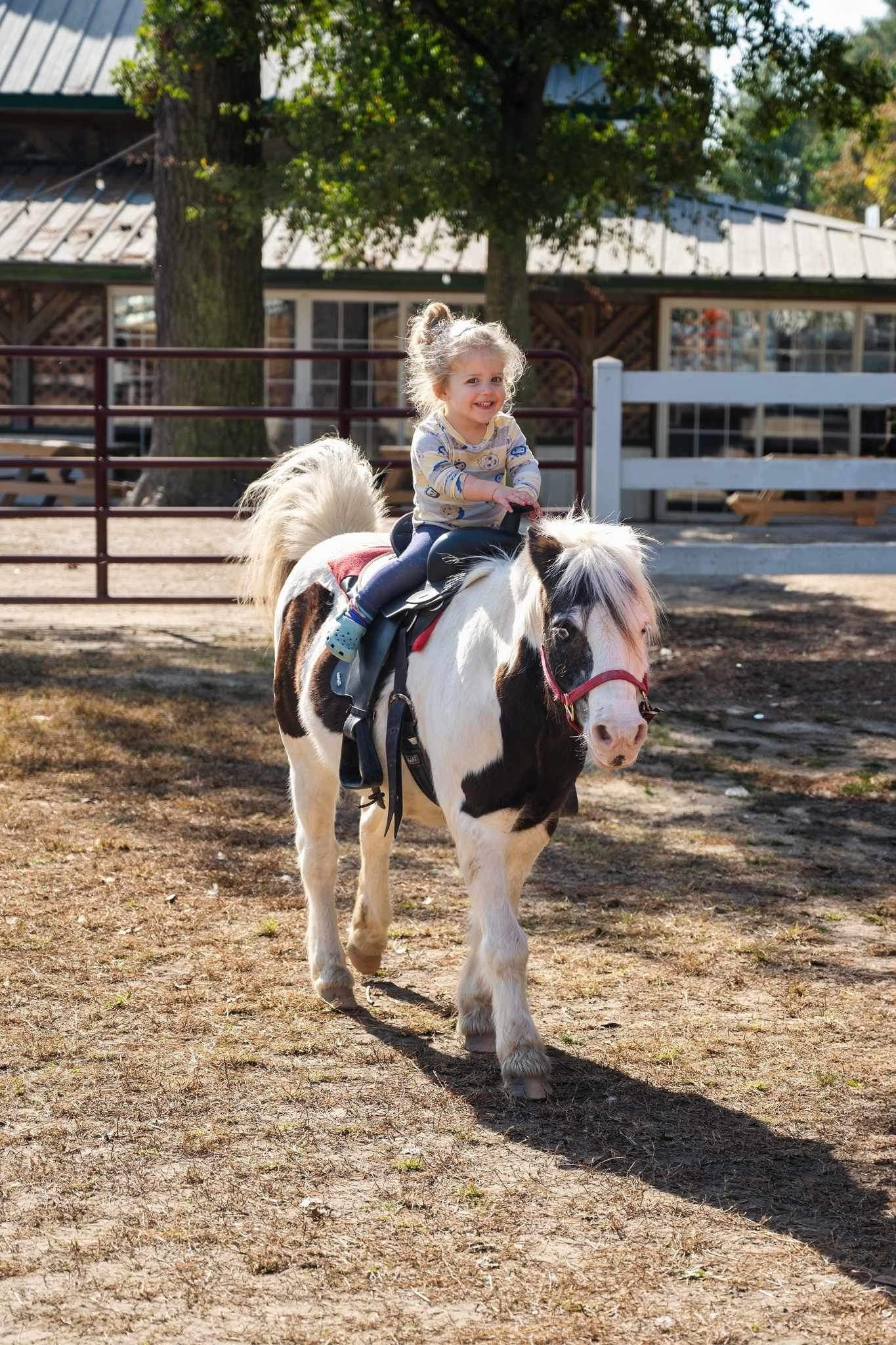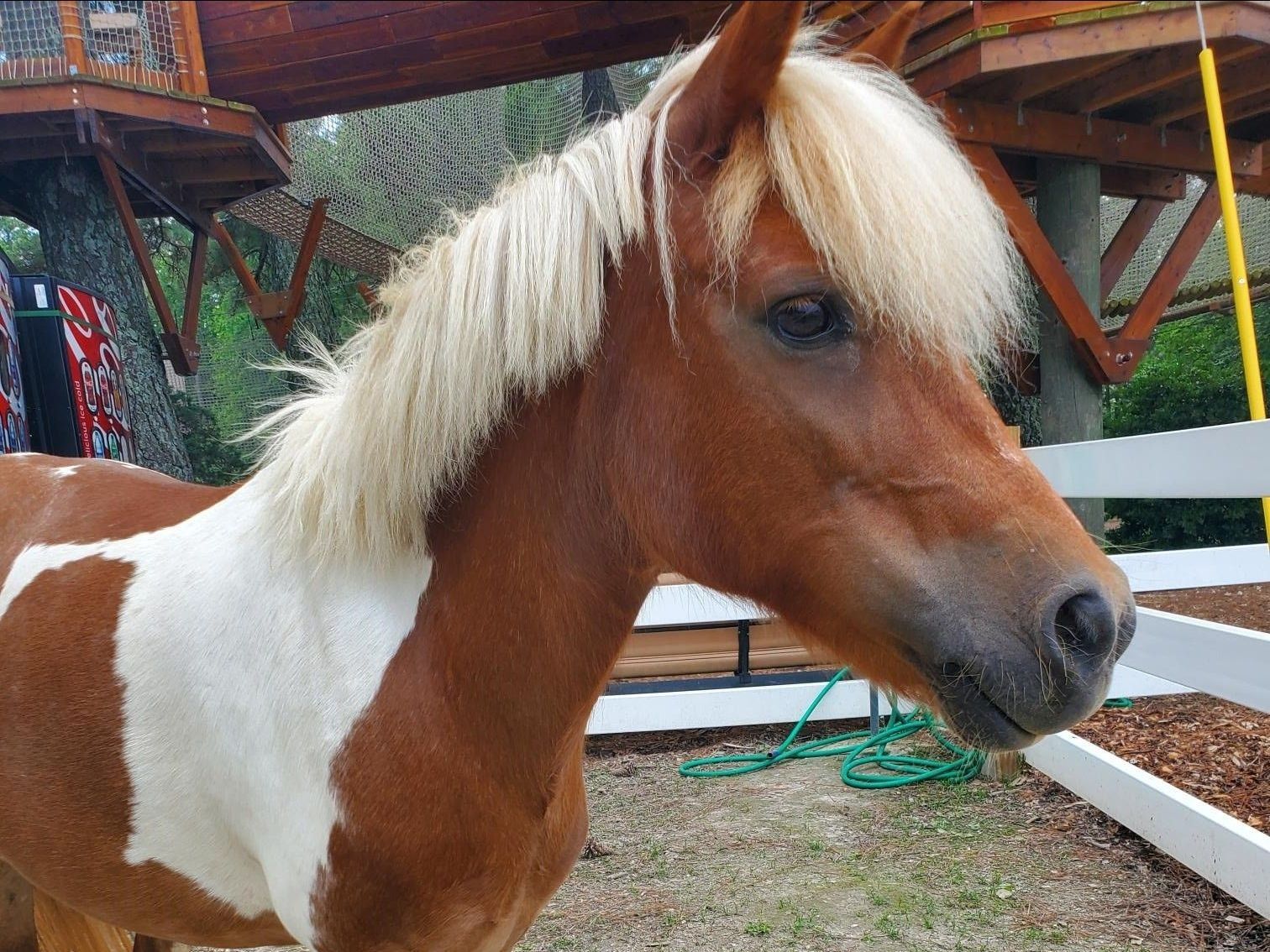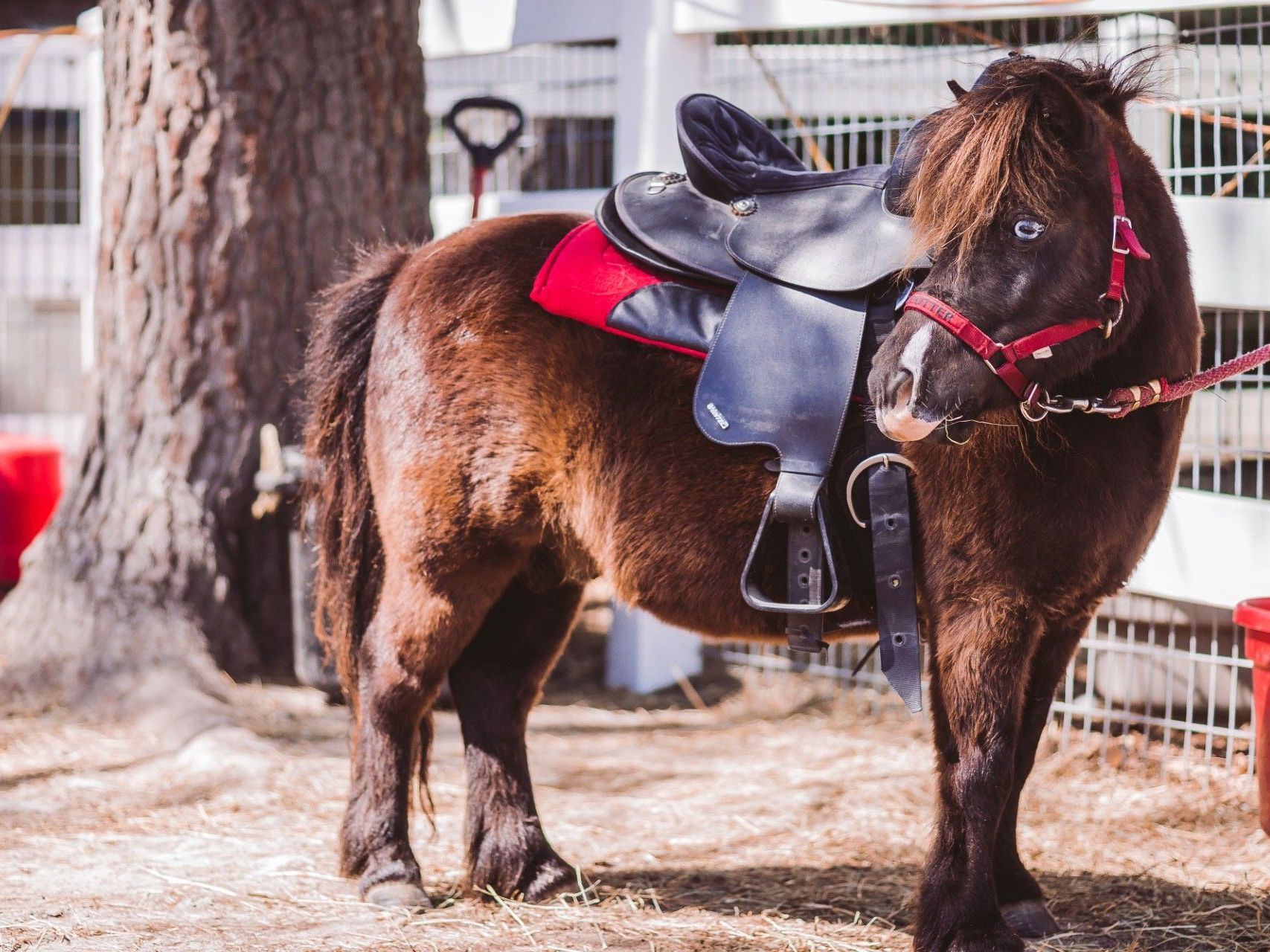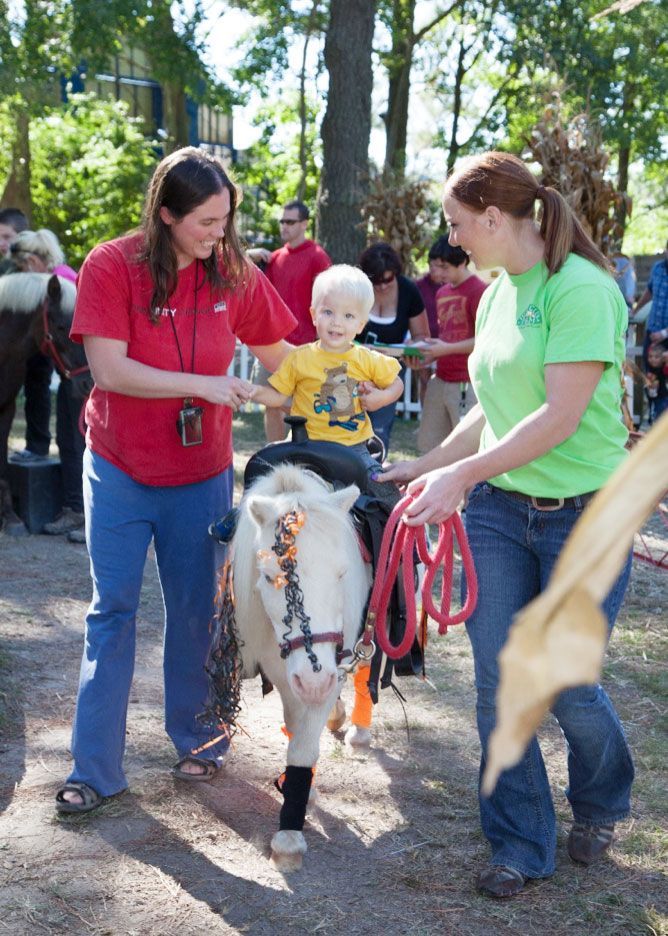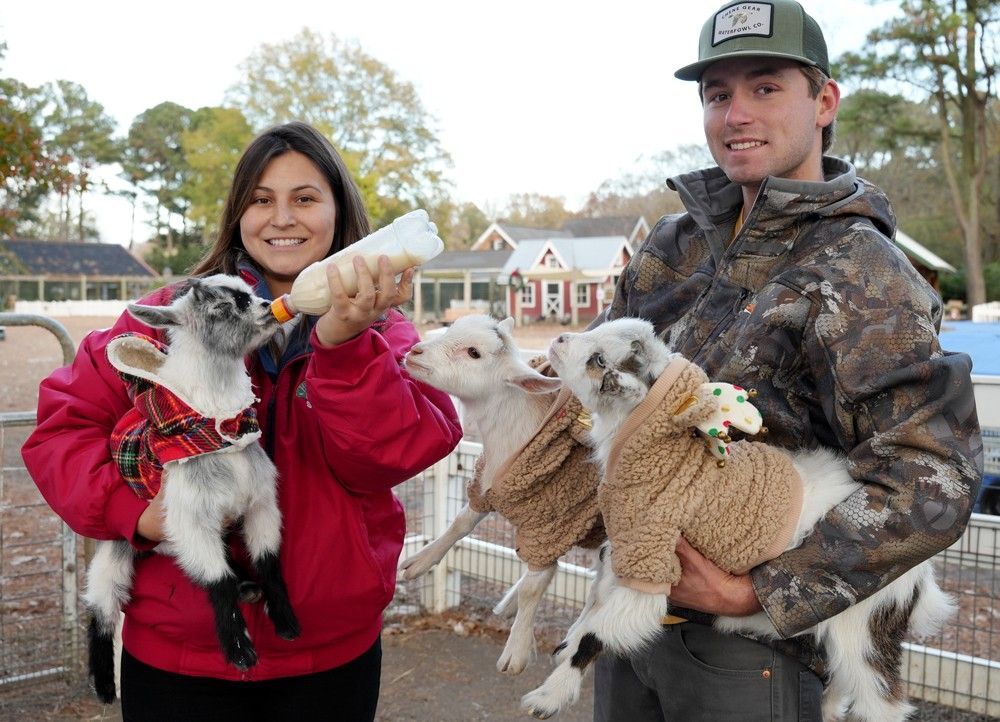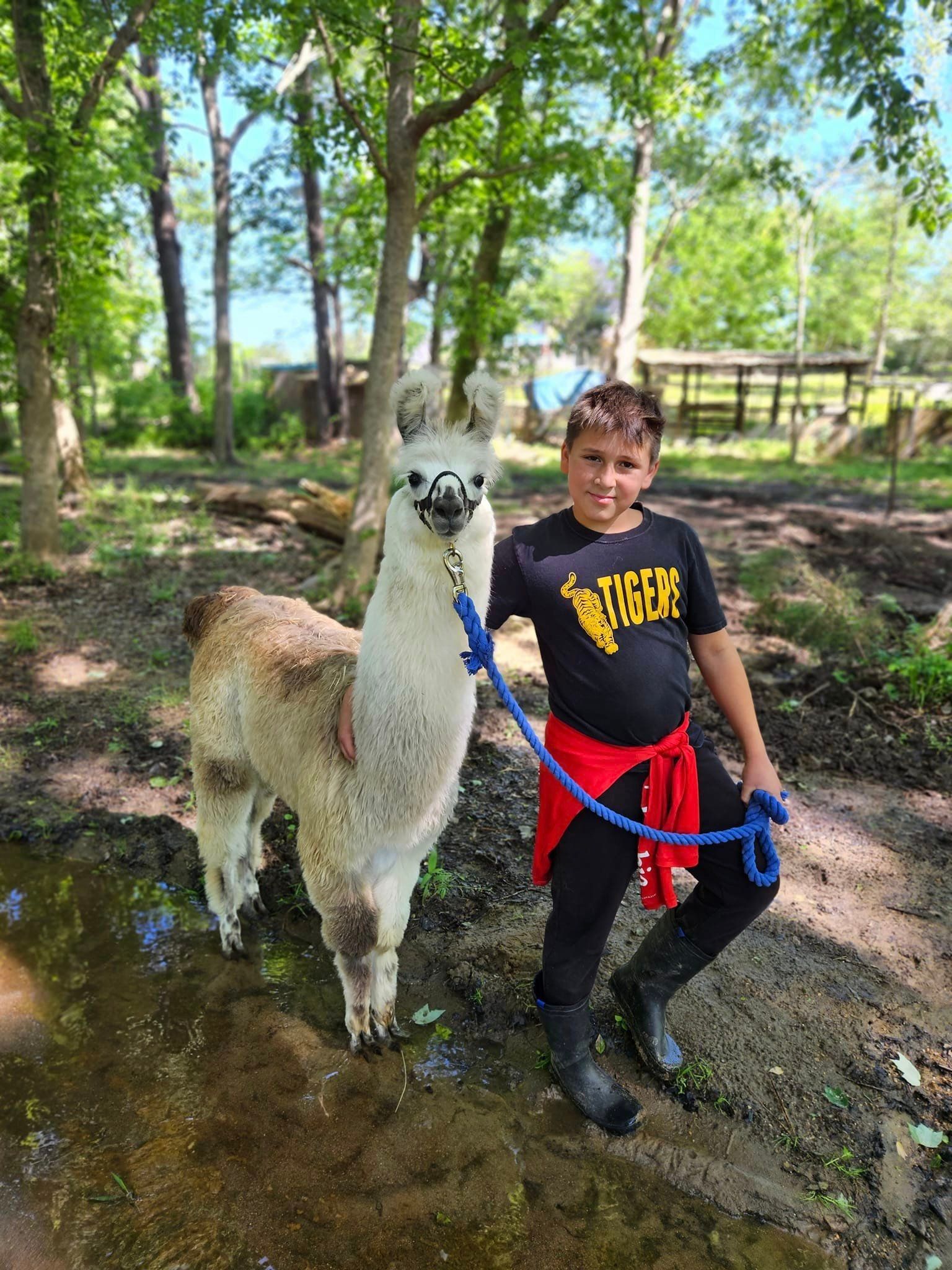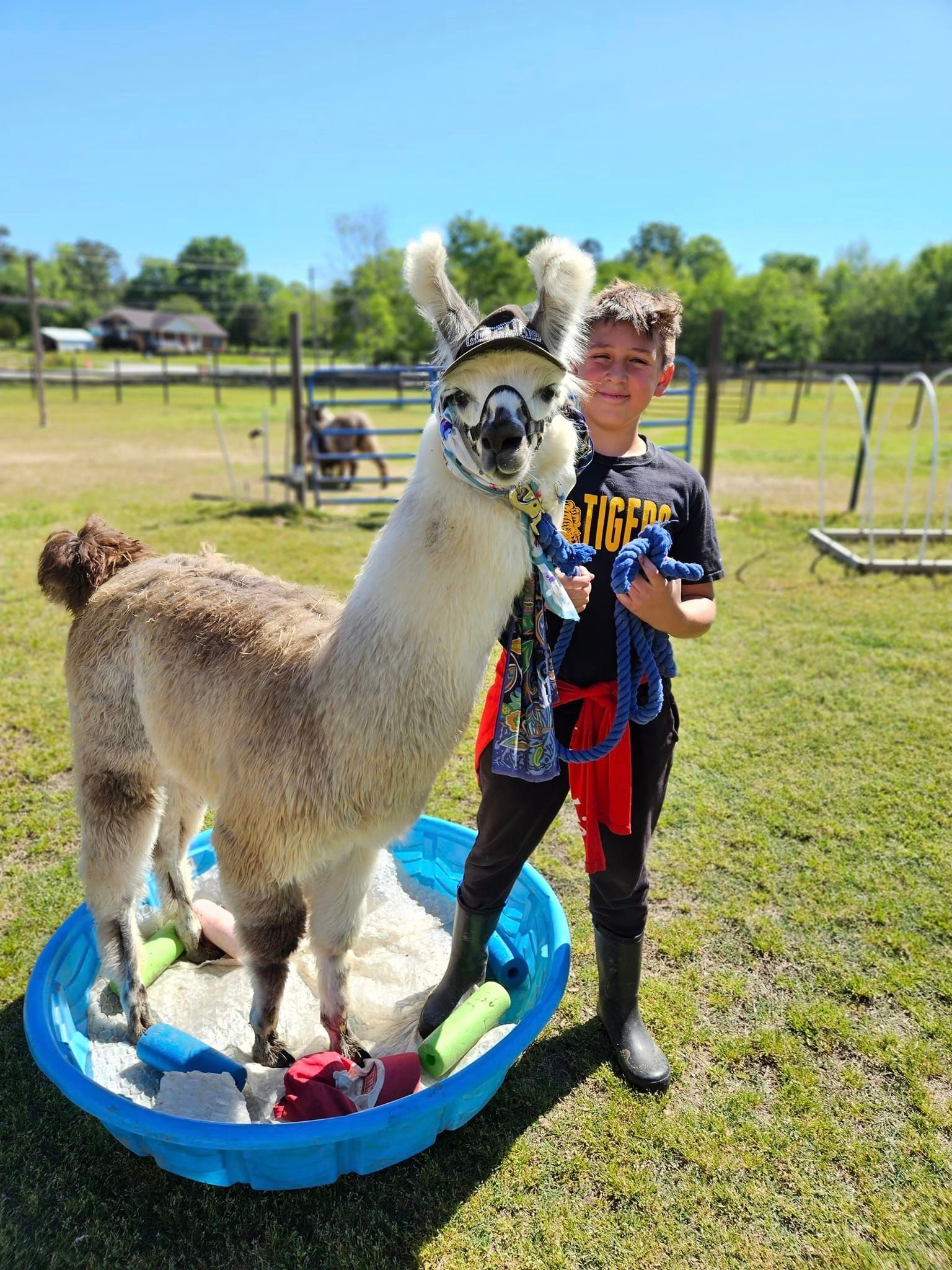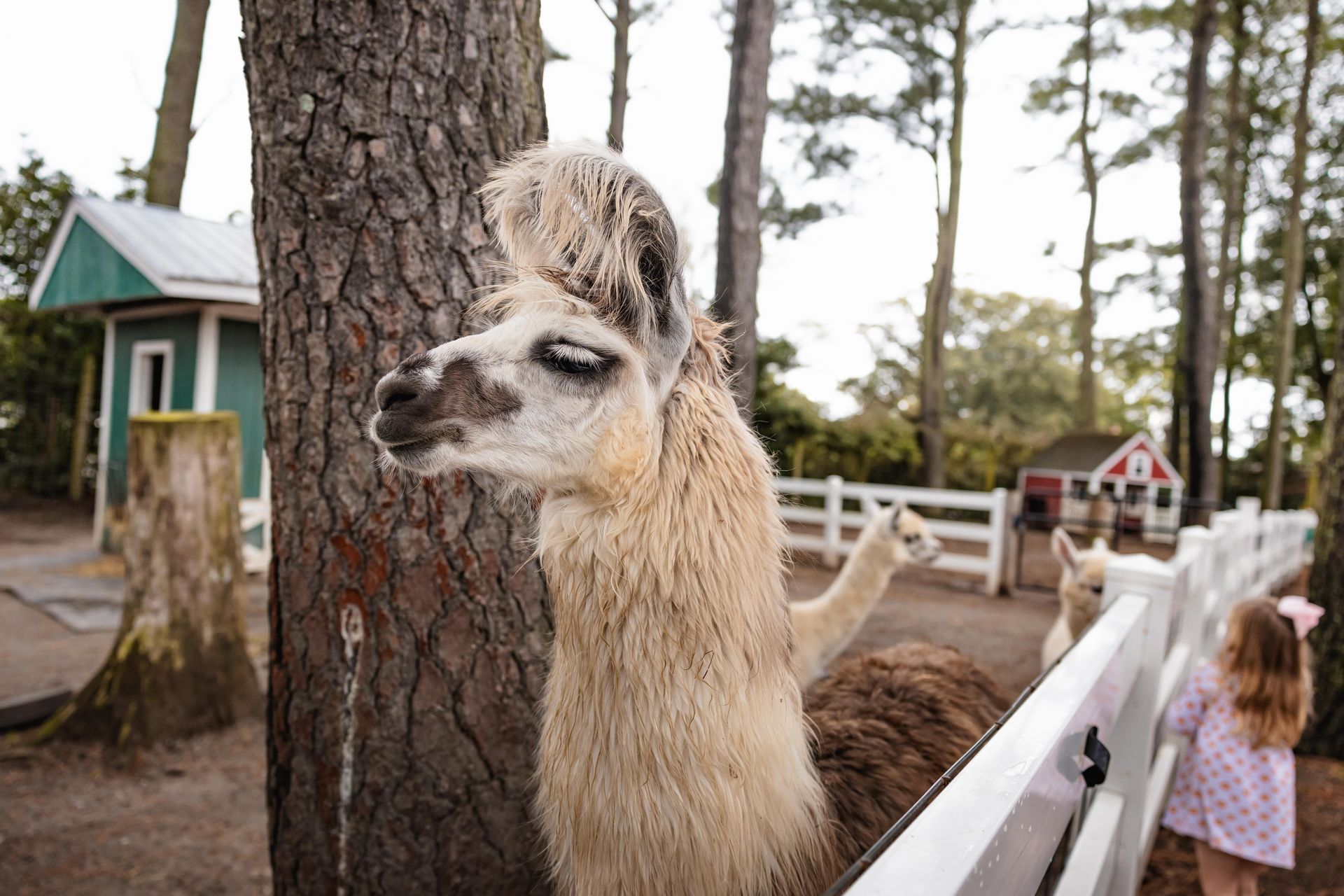NUT’N HONEY’D CHROME
Meet Chrome! Our latest addition to our Petting Farm. Chrome is an Appaloosa llama, who we acquired from Peloquin Farm in Georgia. The term appaloosa is for the unique color of his coat, which is speckled or tricolor. At Peloquin Farm, Chrome went through obedience training and obstacle skills where he learned to be halter trained, walked through obstacles, went on trail hikes, and wore costumes!
Chrome is still young, making him lower in hierarchy. He turned 1 year old on November 2, 2023. By the looks of him, you would not think he was our youngest llama, weighing close to 200 pounds and standing to be almost 6ft tall. Chrome is still learning and enjoys being walked around the farm and meeting new people, as well as other animals.
Have you ever been spit on by a llama? Llamas do spit, it has happened to the best of us. Although they are not intending to spit on people, their aim isn’t very accurate. They generally spit out of irritation towards other llamas or alpacas. Just like other animals, llamas can be food aggressive, and they spit at each other when they feel like their food is being threatened. It is a competition between llamas and alpacas to get what is in your feed cup. You can avoid this by watching their body language. When they pin their ears back and raise their nose up to the sky; watch out. They will also make a sound when they are about to spit.
Come meet Chrome this season and we will have some new surprises for everyone!!!!
